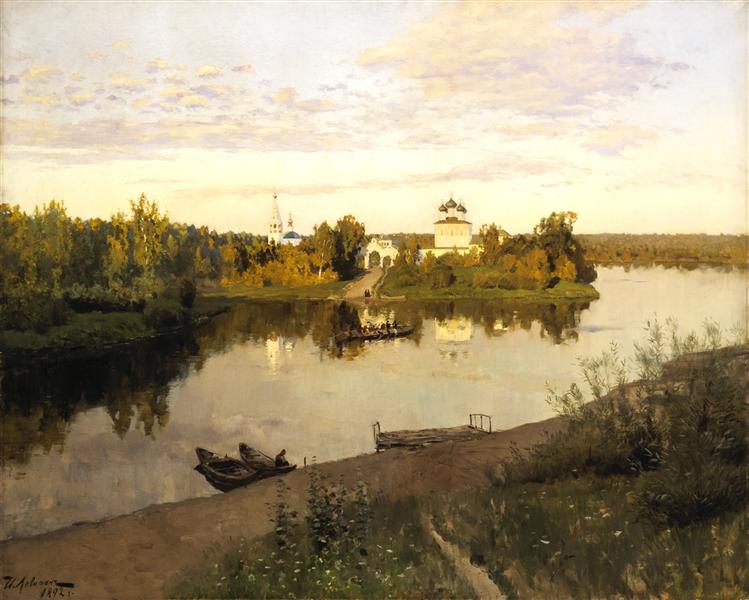 Unfortunately, the fate of Isaac Levitan, the world-recognized master of landscape, was not easy. He lived a short but very fruitful life, leaving behind a great artistic legacy.
Unfortunately, the fate of Isaac Levitan, the world-recognized master of landscape, was not easy. He lived a short but very fruitful life, leaving behind a great artistic legacy.
The painting “Evening Bells” appeared from under the painter’s brush in 1892. It was painted under the impressions received on the artist’s train along the Volga. The beauty of monasteries, bell towers and churches became the basis of this unusually lyrical and poetic picture.
In the painting “Evening Bells” Levitan depicted a quiet warm summer evening. The bright rays of the setting sun highlight the snow-white walls of the church, the melodic bell ringing of the evening prayer resounds over the calm river, giving rise to peace, pleasant melancholy and light sadness in the hearts. The landscape is full of grandeur and solemnity due to the light contrast of the already dark earth and the still light, with a pink tint, the sky, clearly and clearly reflected in the immovable smooth surface of the water. The river is also full of tranquility, a small boat glides along it, in which people are ferried to the other side. Two more boats tied to the shore with a bored boatman are depicted near the near shore.
White buildings with golden domes, hiding behind dense foliage of trees and shrubs, are also reflected in the calm waters of the river. The place depicted by Isaac Levitan in the painting “Evening Bells” unites spiritual and natural principles, becomes a kind of source of the human soul, its peace and self-contemplation.
The work “Evening Bells” is one of the most famous and significant paintings by the artist. It perfectly combines both the skill of the author, who loves and sees the beauty of his native nature, and his mood, lyrical and somewhat sublime. The ability to convey the music of his soul makes Isaac Levitan one of the most outstanding landscape painters.
Year of painting: 1892.
Dimensions of the painting: 87 x 108 cm.
Material: canvas.
Writing technique: oil.
Genre: landscape.
Style: realism.
Gallery: State Tretyakov Gallery, Moscow, Russia.